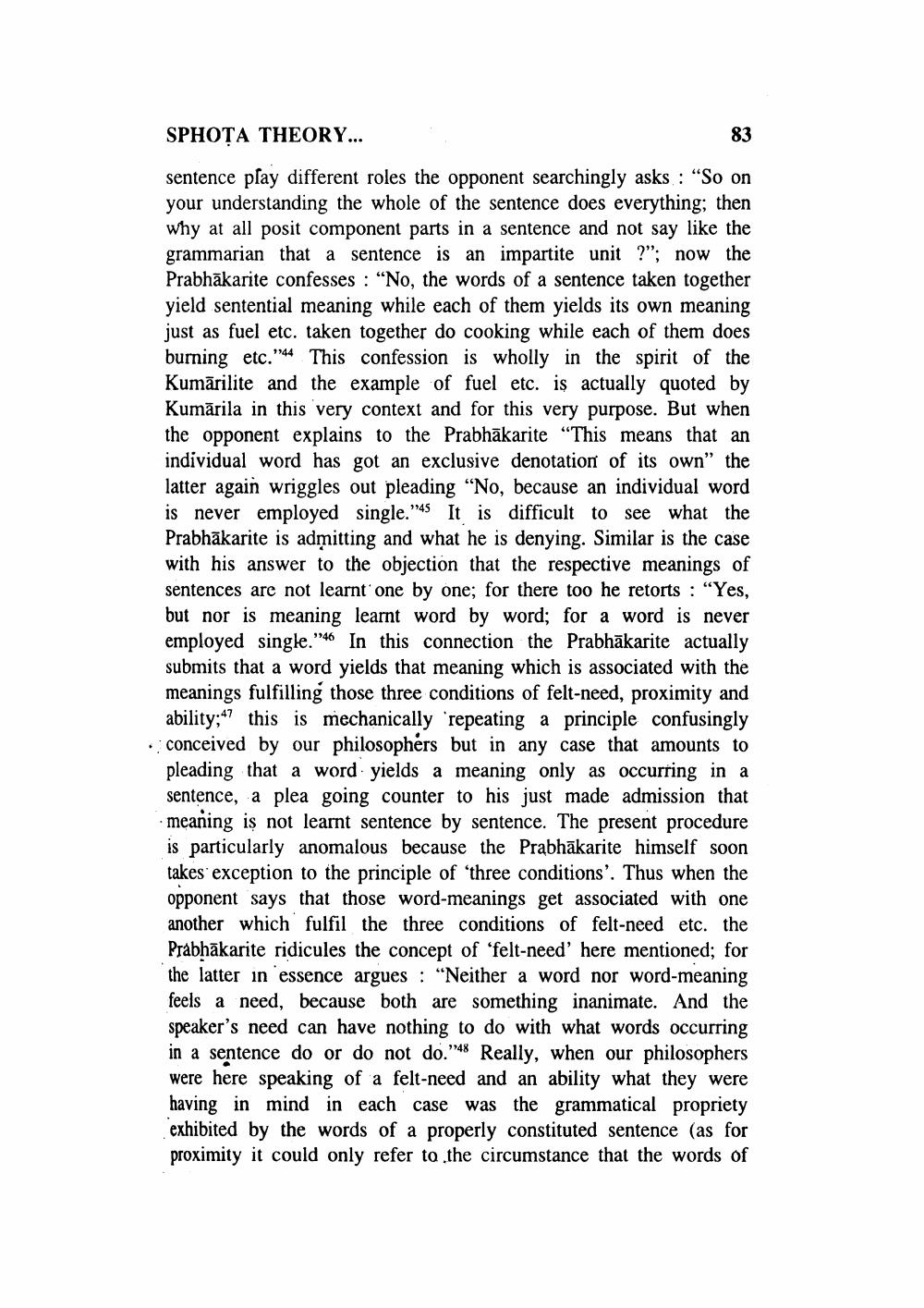________________
SPHOTA THEORY...
83
sentence play different roles the opponent searchingly asks : "So on your understanding the whole of the sentence does everything; then why at all posit component parts in a sentence and not say like the grammarian that a sentence is an impartite unit?”; now the Prabhākarite confesses : "No, the words of a sentence taken together yield sentential meaning while each of them yields its own meaning just as fuel etc. taken together do cooking while each of them does burning etc."44 This confession is wholly in the spirit of the Kumārilite and the example of fuel etc. is actually quoted by Kumārila in this very context and for this very purpose. But when the opponent explains to the Prabhākarite “This means that an individual word has got an exclusive denotation of its own" the latter again wriggles out pleading "No, because an individual word is never employed single." It is difficult to see what the Prabhākarite is admitting and what he is denying. Similar is the case with his answer to the objection that the respective meanings of sentences are not learnt one by one; for there too he retorts : "Yes, but nor is meaning learnt word by word; for a word is never employed single."46 In this connection the Prabhākarite actually submits that a word yields that meaning which is associated with the meanings fulfilling those three conditions of felt-need, proximity and ability;47 this is mechanically repeating a principle confusingly conceived by our philosophers but in any case that amounts to pleading that a word yields a meaning only as occurring in a sentence, a plea going counter to his just made admission that - meaning is not learnt sentence by sentence. The present procedure is particularly anomalous because the Prabhākarite himself soon takes exception to the principle of three conditions'. Thus when the opponent says that those word-meanings get associated with one another which fulfil the three conditions of felt-need etc. the Prabhākarite ridicules the concept of 'felt-need' here mentioned; for the latter in essence argues : "Neither a word nor word-meaning feels a need, because both are something inanimate. And the speaker's need can have nothing to do with what words occurring in a sentence do or do not do."48 Really, when our philosophers were here speaking of a felt-need and an ability what they were having in mind in each case was the grammatical propriety exhibited by the words of a properly constituted sentence (as for proximity it could only refer to the circumstance that the words of




